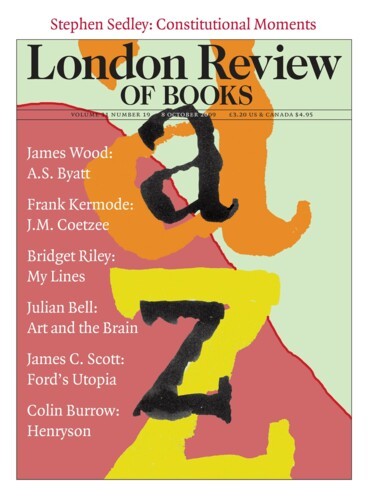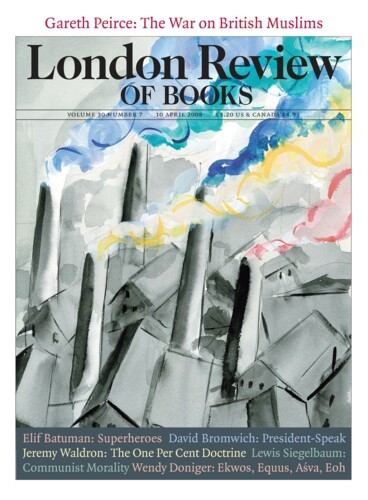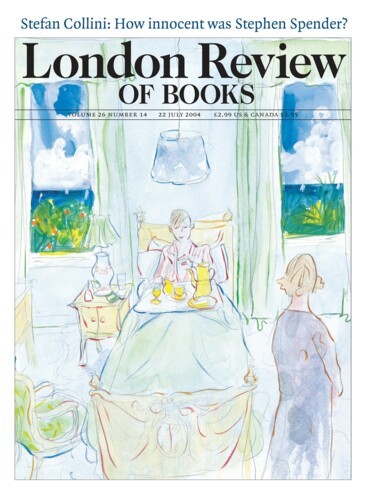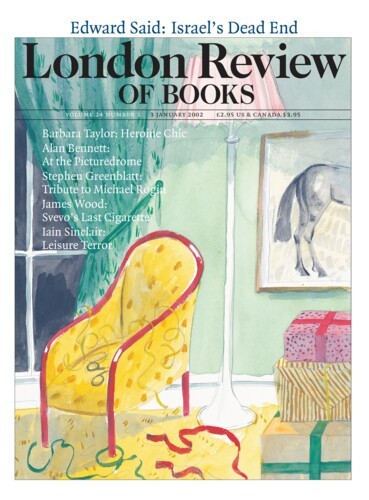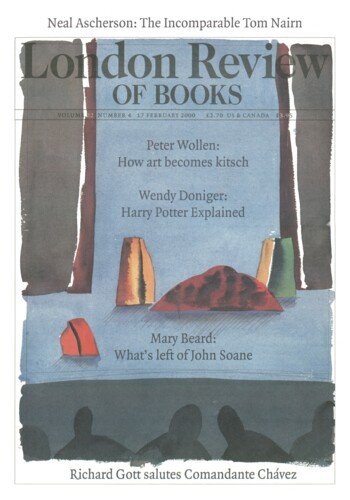Young Harry Potter’s parents are dead. So far, so good: many of the heroes and heroines of the classics of children’s literature are orphans, while others have invisible, unmentionable or irrelevant parents. The sorrow of grieving, not to mention the terror of helplessness, is quickly glossed over in favour of the joy of a fantasised freedom. (A particularly sharp 13-year-old patiently explained to me that if Harry’s parents weren’t dead, there would be no point in writing the book: it wouldn’t be interesting, no matter how many creative details there were.) The problem, for Harry Potter as for most orphans in children’s books, is not the absence of parents but the presence of step-parents. From infancy Harry has been raised by his horrid Uncle Vernon and Aunt Petunia Dursley, who hate him and dote on their own cruel and stupid son, Dudley Dursley; they starve Harry and, when he’s forced to spend summer holidays with them, they intercept his letters from his school friends, his only link with the world of people who care for him.
Young Harry Potter’s parents are dead. So far, so good: many of the heroes and heroines of the classics of children’s literature are orphans, while others have invisible, unmentionable or irrelevant parents. The sorrow of grieving, not to mention the terror of helplessness, is quickly glossed over in favour of the joy of a fantasised freedom. (A particularly sharp 13-year-old patiently explained to me that if Harry’s parents weren’t dead, there would be no point in writing the book: it wouldn’t be interesting, no matter how many creative details there were.)
